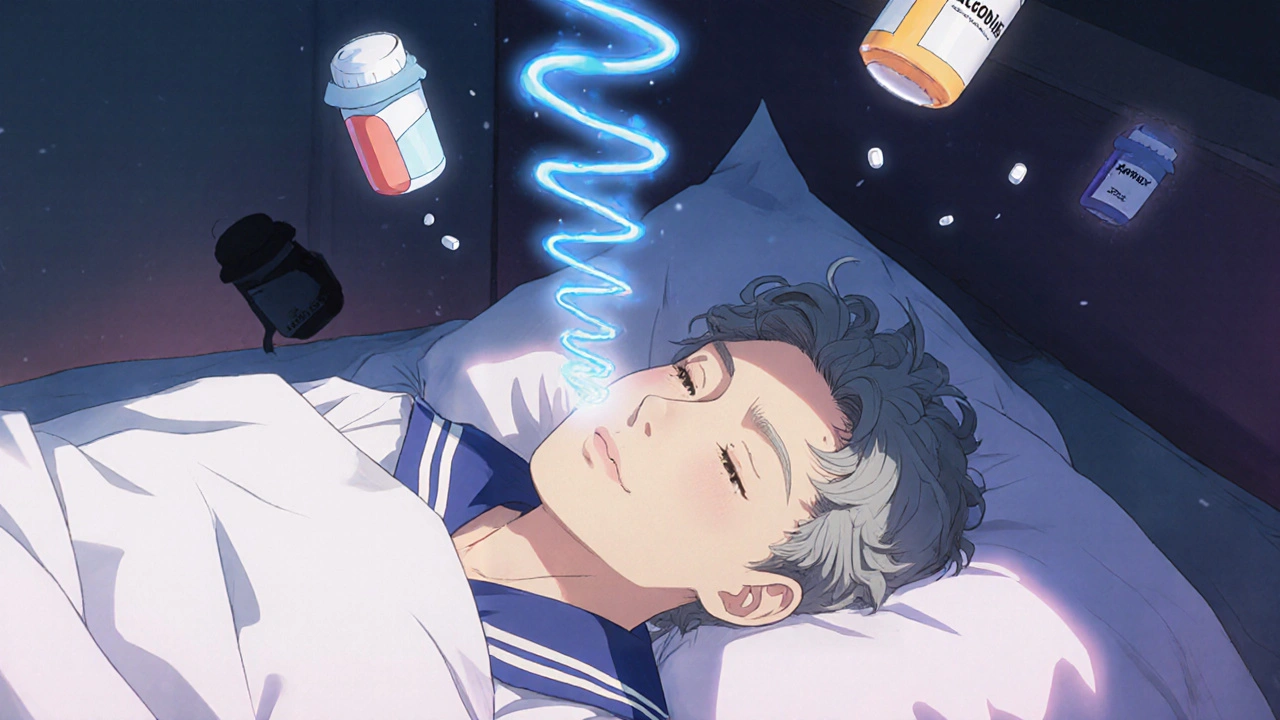Respiratory Depression: Causes, Risks, and What You Need to Know
When your breathing slows down too much, it’s called respiratory depression, a condition where the body doesn’t take in enough oxygen or expel enough carbon dioxide due to suppressed breathing. Also known as hypoventilation, it’s not just a side effect—it’s a medical emergency that can turn deadly in minutes. This isn’t something that happens to "other people." It can happen to anyone using prescription painkillers, sleeping pills, or even mixing alcohol with medication. The risk goes up fast when multiple drugs are involved, and many don’t realize how quickly things can spiral.
One of the biggest culprits behind respiratory depression is opioids, a class of drugs used for pain relief that act on the brainstem to reduce the drive to breathe. Morphine, oxycodone, fentanyl—all of these can trigger it, especially at high doses or when someone isn’t used to them. But it’s not just opioids. sedatives, like benzodiazepines or barbiturates used for anxiety or insomnia, also slow breathing. When you combine them with alcohol or opioids, the effect multiplies. That’s why overdose deaths often involve more than one substance. Even people taking meds exactly as prescribed can be at risk if they have other health issues like sleep apnea, lung disease, or older age.
What does it look like in real life? You might notice slow, shallow breaths—less than 10 per minute. Lips or fingertips turning blue. Confusion or extreme drowsiness. Sometimes, the person can’t be woken up. These aren’t signs to ignore. If someone’s breathing is noticeably slower than normal, especially after taking a new med or mixing substances, get help immediately. Naloxone can reverse opioid-induced respiratory depression, but it won’t work for sedatives. That’s why knowing what caused it matters.
The posts here don’t just list drugs—they show you how they interact, what side effects to watch for, and how to spot trouble before it’s too late. You’ll find real comparisons between medications that can suppress breathing, how caregivers can monitor patients on long-term treatments, and what to do when a loved one’s breathing changes. This isn’t theory. It’s practical knowledge for anyone using, prescribing, or caring for someone on medications that affect the nervous system.

Combining sedating medications like opioids, benzodiazepines, and alcohol can dangerously slow breathing and lead to overdose. Learn the warning signs, high-risk combinations, and how to protect yourself.
Read More
Combining benzodiazepines and opioids dramatically increases the risk of fatal respiratory depression. This deadly interaction suppresses breathing more than either drug alone, leading to thousands of preventable overdose deaths each year.
Read More